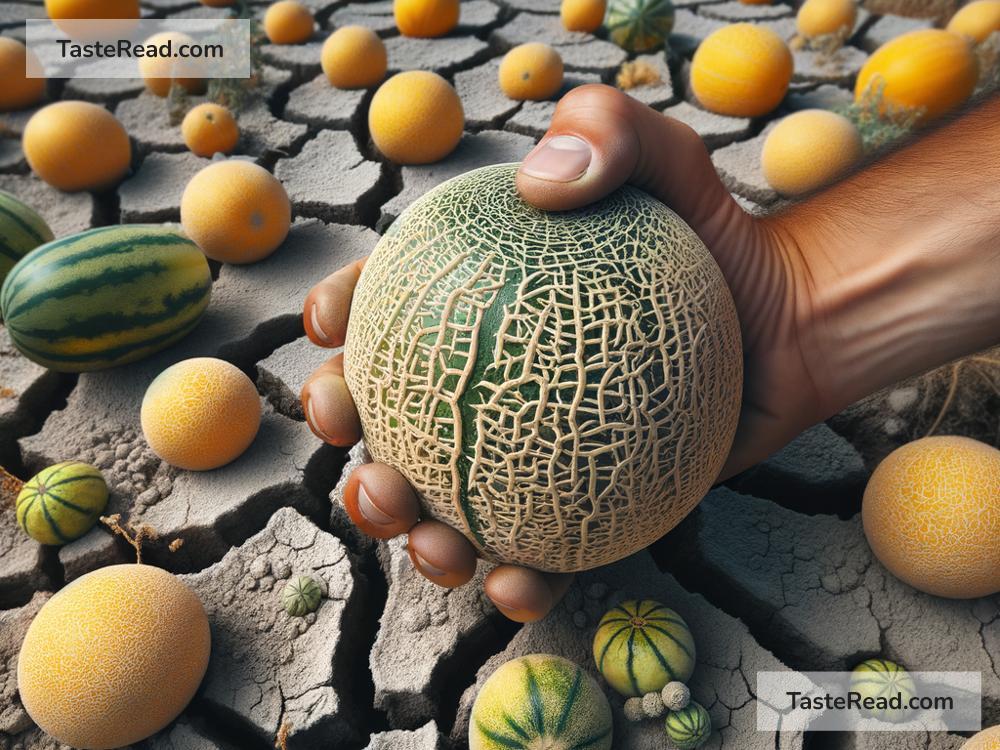The Impact of Soil Salinity on the Taste of Fruits Like Melons
When we think about the sweetness of a juicy melon or the refreshing flavor of a fruit straight from the farm, it’s hard to imagine how much the soil beneath it has influenced its taste. The soil where a plant grows provides nutrients and water, but did you know that the salt content in soil can actually change how a fruit tastes? Let’s explore how soil salinity affects fruits like melons in a simple and clear way.
What is Soil Salinity?
Before diving into its impact, let’s start with the basics. Soil salinity refers to the amount of salts that are dissolved in the soil. These salts can include sodium chloride (common table salt), magnesium sulfate, and calcium chloride. While a small amount of salt in the soil naturally occurs because of weathering rocks and minerals, too much can create problems for plants. High salinity can affect how crops grow, what nutrients they absorb, and, surprisingly, how their fruits taste.
Salty Soils are More Common Than You Think
Soil salinity is a widespread issue, especially in dry regions or areas where irrigation water is used frequently for farming. In these places, irrigation water often brings salts into the soil, and over time, the salt builds up. Climate change, rising groundwater levels, and human activities like over-irrigation also contribute to this growing problem. For farmers growing melons, tomatoes, grapes, or other flavorful fruits, salinity is often a challenge—but it can also lead to surprising results.
How Soil Salinity Impacts Fruit Taste
So, what does salty soil have to do with your favorite cantaloupe or watermelon? It all comes down to how plants respond to stress. When soil has a lot of salt, it creates stress for the plant. Here’s what happens:
-
Water Struggles: High salt levels make it harder for the roots to absorb water from the soil. This means the plant has to work extra hard to stay hydrated.
-
Concentration of Sugars: Stress caused by salinity triggers some plants, such as melons, to concentrate more sugars in their fruits. This is the plant’s natural defense mechanism—they produce sugars to cope with stress, which leads to sweeter fruits.
-
Enhanced Flavor: In addition to sweetness, salinity can indirectly strengthen certain flavor profiles in fruits like melons and tomatoes. Sometimes farmers even use controlled salinity in irrigation to boost the flavor of their crops.
Does Salinity Always Lead to Better Taste?
While salty soils can enhance sweetness and flavor in some fruits, it’s a delicate balance. Too much salt can harm plants outright. Here’s why:
-
Growth Problems: Excessive salt can stunt the growth of the plant by damaging its roots and making it harder to take in nutrients.
-
Lower Yield: If the plant struggles too much, it may produce fewer fruits. Farmers need a delicate balance of salt to encourage flavor enhancement without reducing crop yields.
-
Nutritional Changes: High salinity can change the mineral composition of fruits slightly, sometimes affecting their nutritional content.
Melons and Other Fruits: Sweet Benefits From Salty Challenges
Melons, such as cantaloupes and honeydews, are particularly interesting when it comes to soil salinity. These fruits are naturally sweet, but small amounts of stress—like slightly salty soil—can push them to be even sweeter and tastier. For example, in regions where soil salinity is moderate (like parts of southern Spain or certain arid farming areas), melons grown there often have exceptional sweetness.
Tomatoes and grapes show similar effects. Grapes grown in moderately salty soils are prized for wines because the stress enhances their sugar and acidity balance, leading to more complex flavors. Farmers have learned to use this stress in controlled ways to improve crop quality.
What Can Farmers Do About Salty Soils?
Farming in salty soils isn’t always easy. Farmers have to carefully manage how they irrigate their crops and sometimes choose special plant varieties that can tolerate salt stress. Here are a few strategies growers use:
-
Choosing Salt-Tolerant Varieties: Certain fruit varieties are better equipped to handle salty soils, so farmers select those for planting.
-
Better Irrigation Practices: Farmers can reduce salt buildup by using drip irrigation, which provides water directly to the roots where it’s needed most.
-
Adding Soil Treatments: Organic matter or gypsum can be added to the soil to help reduce the effects of salinity over time.
-
Rotating Crops: By switching the types of crops grown each season, farmers can manage salt-related stress more effectively.
Conclusion
Soil salinity is an invisible player in the world of farming that has a surprising impact on the fruits we eat. For fruits like melons, salt stress pushes plants to create sweeter, tastier produce—turning a farming challenge into an opportunity for better flavor. However, too much salt can hurt plants and reduce crop yields, so it’s a balancing act for farmers. The next time you bite into a perfectly sweet cantaloupe or enjoy a refreshing watermelon, remember the role that soil—and even its saltiness—may have played in giving your fruit its delicious taste.


